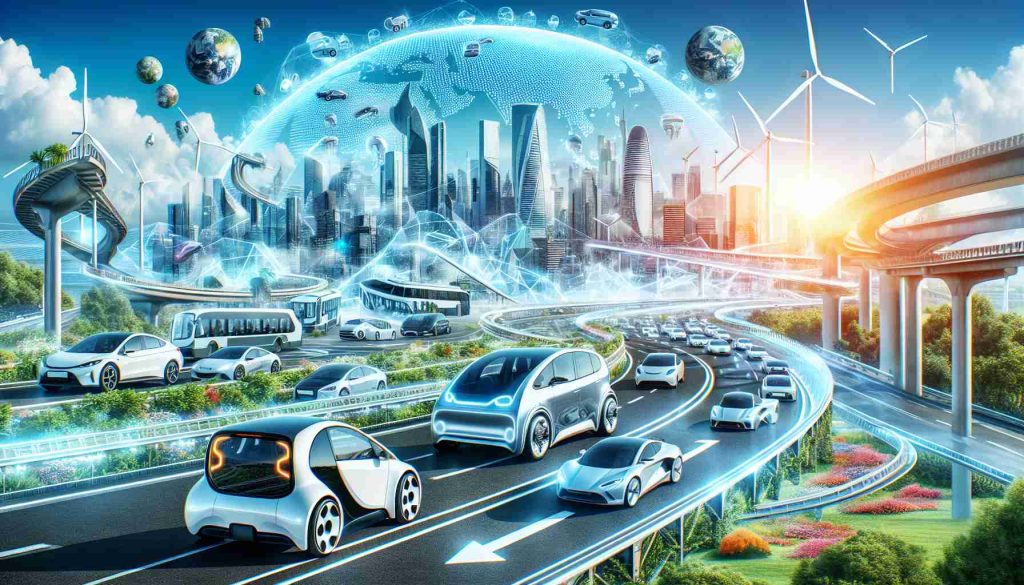Electric Vehicles: The Future Looks Bright! Are You Ready for the Change?

The landscape of transportation is undergoing a remarkable transformation with electric vehicles (EVs) at the forefront of this revolution. A recent study published in the prestigious journal Nature provides compelling evidence that highlights the improving reliability of EVs, showing a significant 12% decrease in failure rates each year.
Key Insights from the Research
An extensive analysis of around 300 million MOT test records from the UK revealed a striking evolution in vehicle performance. Initially, battery electric vehicles (BEVs) lagged behind internal combustion engine (ICE) vehicles in reliability. However, ongoing advancements in battery technology and design have propelled newer BEVs to not only match but often surpass the reliability of traditional vehicles.
Broader Implications and Challenges
The study suggests that the overall cost of owning BEVs could be more favorable than previously thought, thanks to lower maintenance requirements. Yet, a pressing issue remains: the lifespan of lithium-ion batteries. While manufacturers advocate for the longevity of these batteries, concerns about high replacement costs could lead to many EVs being discarded prematurely, particularly in nations like China.
Researchers emphasize the need for stringent regulations and the establishment of a circular economy to recycle and reuse battery components, paving the way for a sustainable future in transportation. As technology continues to advance, the automotive world is poised for a significant shift towards greener, more reliable vehicles.
Implications of the Electric Vehicle Revolution
The transition to electric vehicles (EVs) is more than just a technical shift; it represents a seismic change with wide-reaching effects on society, culture, and the global economy. As EV adoption accelerates, it reshapes consumer behavior and urban infrastructure. Cities are rethinking transportation systems, encouraging public transit alternatives, and even reshaping urban design to accommodate increased charging stations. This shift fosters a culture centered around sustainability and reduced carbon footprints.
Economic impacts are profound, with the EV market expected to grow exponentially. According to market analysts, global sales of electric vehicles could reach over 30% of all new car sales by 2030, bolstering economies and creating jobs in manufacturing, technology, and renewable energy sectors. This surge underscores an urgent need for a skilled workforce adept at maintaining and innovating the new generation of EVs.
Environmental effects are another critical consideration. While EVs generate lower emissions during operation, the lifecycle of lithium-ion batteries raises red flags regarding resource extraction and ecological degradation. The projected increase in battery production may exacerbate issues such as mining-induced habitat destruction. Determining the sustainability of raw materials used in battery manufacturing is essential for maintaining the environmental integrity of this green revolution.
As we forge ahead, the establishment of a robust circular economy in battery production and recycling will not only mitigate environmental impacts but also drive technological innovation. This transformation exemplifies a crucial intersection of progress and responsibility, demanding that society grapples with both the opportunities and challenges presented by the electric vehicle era.
Revolutionizing Transportation: The Rise of Electric Vehicles and Their Reliability
Electric Vehicles (EVs): A Transformative Shift
The transportation sector is witnessing a seismic shift as electric vehicles (EVs) become increasingly prevalent. A noteworthy study featured in Nature highlights a remarkable trend: the reliability of electric vehicles is improving significantly, with a reported 12% annual decrease in failure rates. This data reflects a broader trend that is reshaping consumer perceptions and market dynamics regarding electric vehicles.
Key Insights from the MOT Test Analysis
An analysis of approximately 300 million UK MOT test records revealed a notable transformation in vehicle performance over time. Initially, battery electric vehicles (BEVs) struggled to match the reliability of traditional internal combustion engine (ICE) vehicles. However, advancements in battery technology and innovative design have allowed newer BEVs to not only keep pace but, in many instances, exceed the reliability levels of their ICE counterparts.
Cost Efficiency and Ownership Challenges
One of the concerns surrounding BEVs has been the total cost of ownership. The study indicates that owning a BEV may be more economically viable than previously assumed, mainly due to their reduced maintenance needs. However, challenges persist, particularly concerning the lifespan and cost of lithium-ion batteries. Manufacturers promote the durability of these batteries, yet the high replacement costs can deter potential buyers, fostering a worrying trend of premature EV disposals, especially in markets like China.
The Need for Sustainable Practices
As the automotive industry continues to evolve, the emphasis on sustainability becomes increasingly crucial. Researchers have underscored the importance of regulatory frameworks and the establishment of a circular economy for the recycling and reuse of battery components. These initiatives are essential for promoting a sustainable transportation future and mitigating environmental impacts.
Current Trends and Innovations
The electric vehicle landscape is rapidly advancing. Innovations such as solid-state batteries are on the horizon, promising enhanced safety, greater energy density, and extended lifespans compared to traditional lithium-ion batteries. Additionally, advancements in charging infrastructure are making EV ownership more convenient, with fast-charging stations becoming increasingly ubiquitous.
Market Analysis and Future Predictions
The electric vehicle market is expected to continue its upward trajectory, with projections suggesting that by 2030, EVs could make up a significant share of global vehicle sales. As the technology matures and consumer confidence grows, more people will transition to electric vehicles, further driving demand.
Conclusion: A Greener and More Reliable Future
In conclusion, the ongoing evolution of electric vehicles signifies a pivotal moment in the transportation sector. With improvements in reliability and potential cost benefits, alongside a greater emphasis on sustainability, electric vehicles are not just a passing trend but a cornerstone of the future of mobility.
For more insights on electric vehicles and sustainable transportation, visit Nature.



